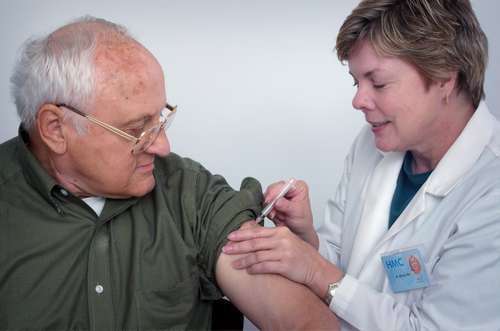While the role of a caregiver might not be one of the most heralded in society, it goes without saying that it is one of the most important. The job caregivers do is not only sensitive— dealing with aging adults living gracefully towards the end of their lives— it is also delicate.
As a caregiver, you have to understand how to care for individuals in every way possible, and that includes keeping an eye on their medications and understanding how each one works.
Managing medications effectively not only helps you keep them on the right path as far as their medical therapy is concerned, it can also help you track any signs of complications and identify medications that could be harmful in a timely manner.
In this article, we outline some of the most effective strategies to help caregivers manage medications in aging adults.
The Importance of Medication Management For Caregivers of Aging Adults

Senior taking prescription drugs from a bottle | Pexels
Modern medicine has done tremendously well for humanity since the early days of its adoption. With modern medicine, we've become used to longer lifespans, improved health and a general boost to the quality of life we enjoy. Most of the diseases and conditions frequently associated with aging adults are commonly treated with medication.
Additionally, not only can we now treat and cure diseases that long ago were considered incurable, we can now detect and diagnose early, relieve pain and suffering, and prevent life-threatening illnesses. Even individuals with terminal illnesses can now live the later stages of their lives more comfortably.
However, for aging adults, medications can be something of a double-edged sword. They need to be used appropriately and safely, otherwise awful consequences could ensue. The very nature of older people, with aging cells and internal defense mechanisms that are no longer as strong as they used to be, makes them more susceptible to medication-related problems (MRPs). MPRs are preventable, though, and this is where the caregivers come into play.
Caregivers, together with doctors, pharmacists and patients, form the group of critical stakeholders who all need to function as a team for better health outcomes when taking care of aging adults.
The assistance they provide in helping to identify MPRs is invaluable, and could prevent costly and unwanted negative consequences that wrongful medications can cause, including admission to acute care hospitals, nursing homes or assisted living facilities.
Strategies For Effective Medication Management
These are some of the strategies that can help you manage medications effectively:
1. Maintain a Comprehensive Medication List
The foundation of effective medication management is keeping an up-to-date list of all medications, including prescriptions, over-the-counter drugs, and supplements. A list like this should record the following in detail:
- Medication names and purposes
- Dosages and schedules
- Potential side effects and interactions
As a caregiver, you're expected to regularly update this list and share with healthcare providers to ensure accurate communication during regular appointments or emergencies.
2. Utilize Pill Organizers
One of the potential slip ups when it comes to managing complicated medication schedules is the mixing up of pills. Pill organizers play a huge role in medication management, as they help to minimize slip ups.

Pill organizer surrounded by pills on a table | Pexels
There are monthly or weekly organizers with compartments for different times of the day, to help caregivers simplify medication routines. For added convenience, you can use digital pill dispensers. They come with alarms and lock features to help you dispense in a timely manner while preventing errors.
3. Set Reliable Reminders
It's great that we live in a period of technological advancement where there are tools being churned out in almost every area of our lives. There are several tools to help caregivers and aging adults stay on track. Smartphone apps, alarm clocks, or voice assistants can send reminders for specific medication times. You can also pair medication schedules with certain daily activities such as meals or bedtime to establish consistent routines.
4. Understand Each Medication
As a caregiver, you're expected to know the purpose, side effects, and interactions of each medication. Caregivers should consult with pharmacists or healthcare providers to clarify concerns and avoid common pitfalls, such as:
- Taking medications at incorrect times
- Ignoring dietary restrictions (e.g., avoiding grapefruit with certain drugs)
- Abruptly stopping medications without consulting a doctor
Medication management for aging adults will be much better if you're equipped with the right information.
5. Simplify the Medication Regimen
Caregivers typically work hand in hand with healthcare providers to simplify the medication routine. To do this, physicians may merge medications by prescribing combination pills or eliminating unnecessary drugs. When the routine is simplified, it not only reduces confusion but also increases adherence.
6. Communicate Regularly with Healthcare Providers
It is important for you as a caregiver to hold regular check-ins with doctors or pharmacists. These check-ins are held regularly to ensure the medication plan remains effective and safe. At these meetings, you can inform providers about any new symptoms, lifestyle changes, or concerns about side effects. When your approach to medication management is proactive like this, complications can be easily prevented.
7. Monitor for Side Effects and Drug Interactions
This cannot be overstated. When left unchecked, negative reactions to medications can impair the health of aging adults. Caregivers are expected to look out for:
- New or worsening symptoms
- Changes in mood, appetite, or behavior
- Interactions between medications, food, or supplements
If these are identified and addressed as early as possible, then the risks will be minimized and the physician can either adjust the medication or change it altogether.
8. Involve the Aging Adult

Caregiver and a senior selecting prescription drugs together | Pexels
The most important person in the process of medication management is the aging adult themselves. As much as possible, involve them in the process; it is good for independence and accountability. Educate them on the importance of sticking to their medication plan, potential side effects and the basics of proper storage. This not only builds trust, but also empowers them.
9. Organize and Secure Medications
Proper storage prevents accidental misuse or deterioration. As much as possible, medications should be kept in a cool, dry place, away from sunlight, moisture, and unauthorized access. Carry out periodic checks on the expiration dates and dispose of outdated medications responsibly.
10. Prepare for Emergencies
As a caregiver, you can't control everything. Emergencies can spring up at any time, so it makes sense to move prepared. Having a copy of the updated medication list, along with details about the individual’s medical history, ensures quick and accurate information during crises. Also, maintain a small travel kit with essential medications in case unexpected trips come up.
Final Thoughts
The role caregivers play in managing medications for aging adults cannot be overstated. It is a role that calls for diligence, organizations and regular communication. The strategies outlined in this article will help make your job easier.
The most important thing is to stay informed, always be prepared, and take proactive steps. All these, combined together, could make a significant difference in the quality of life for aging adults.




